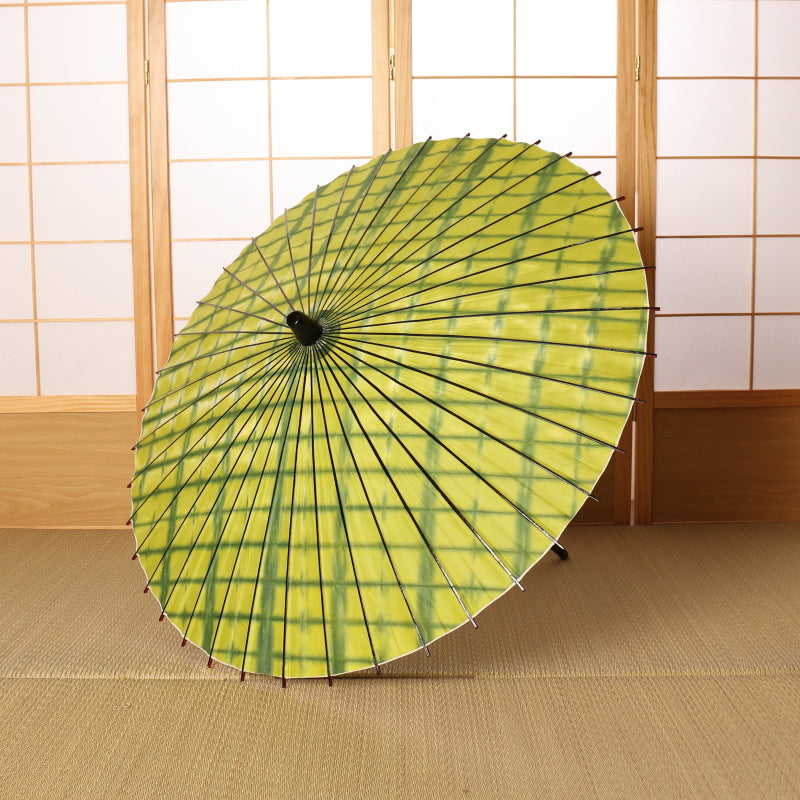
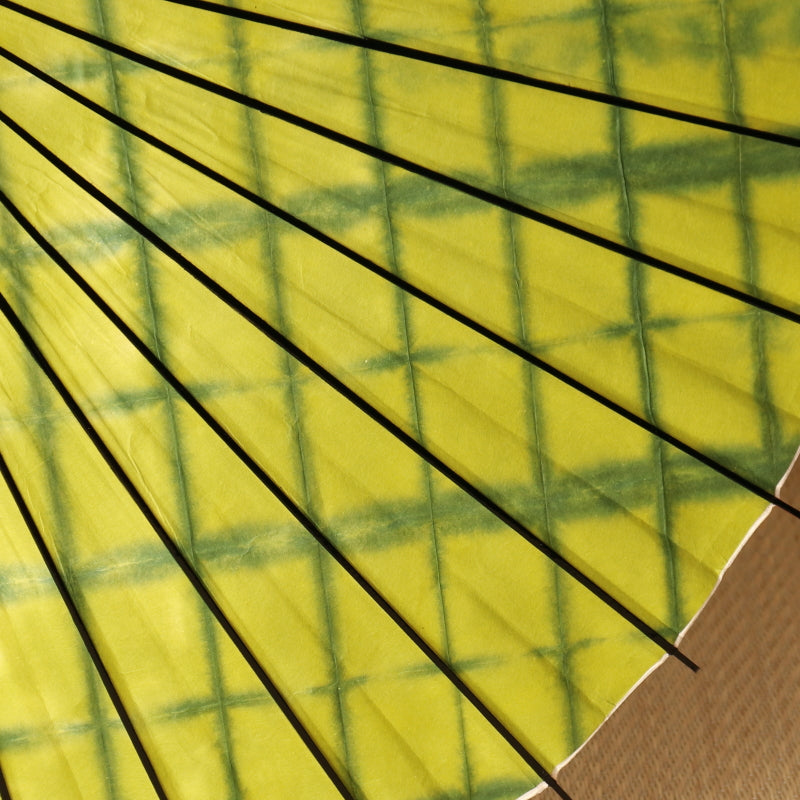
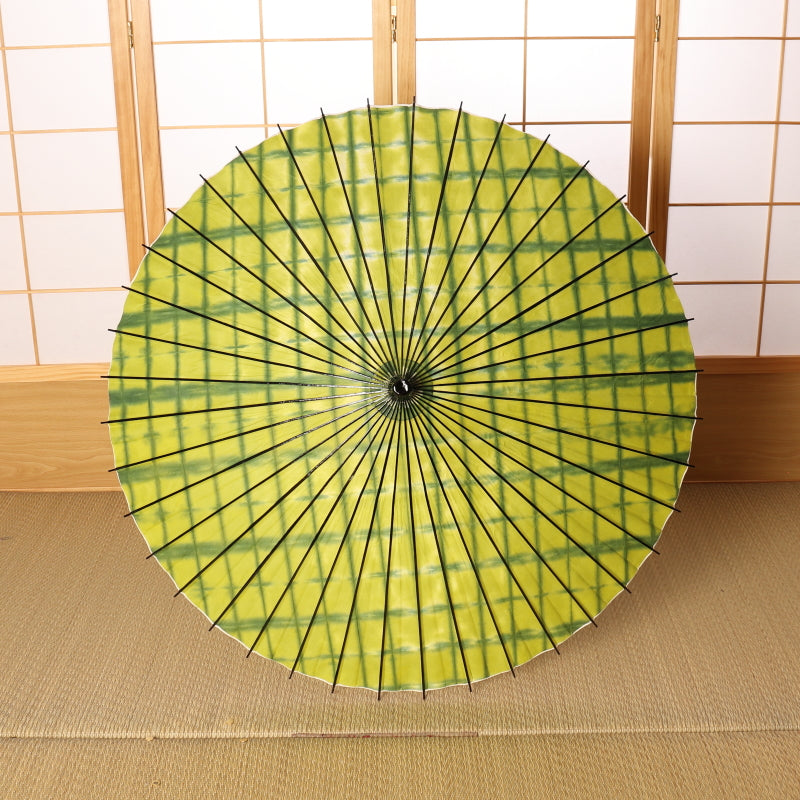
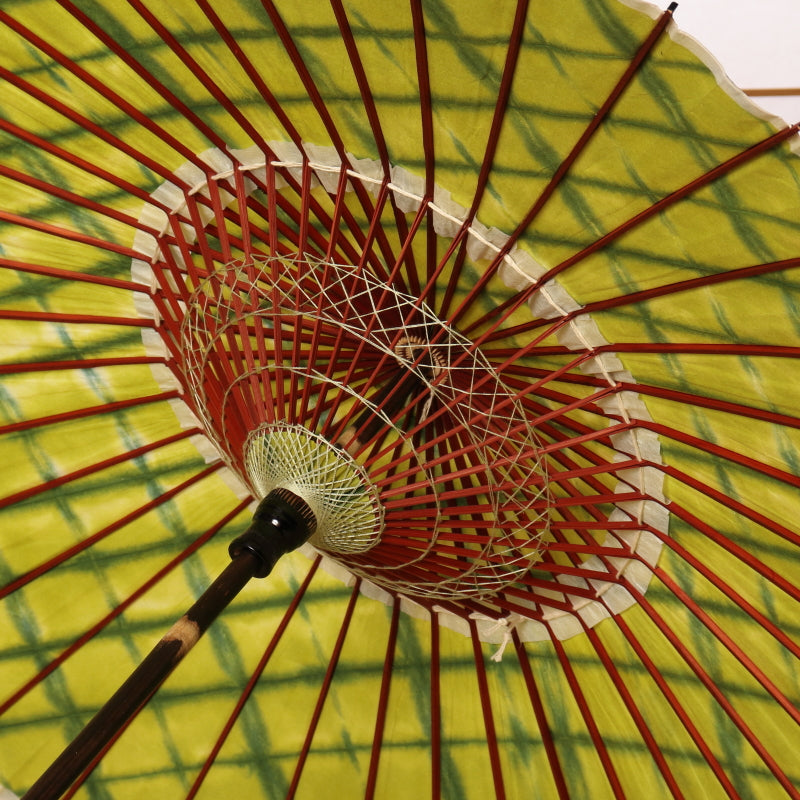
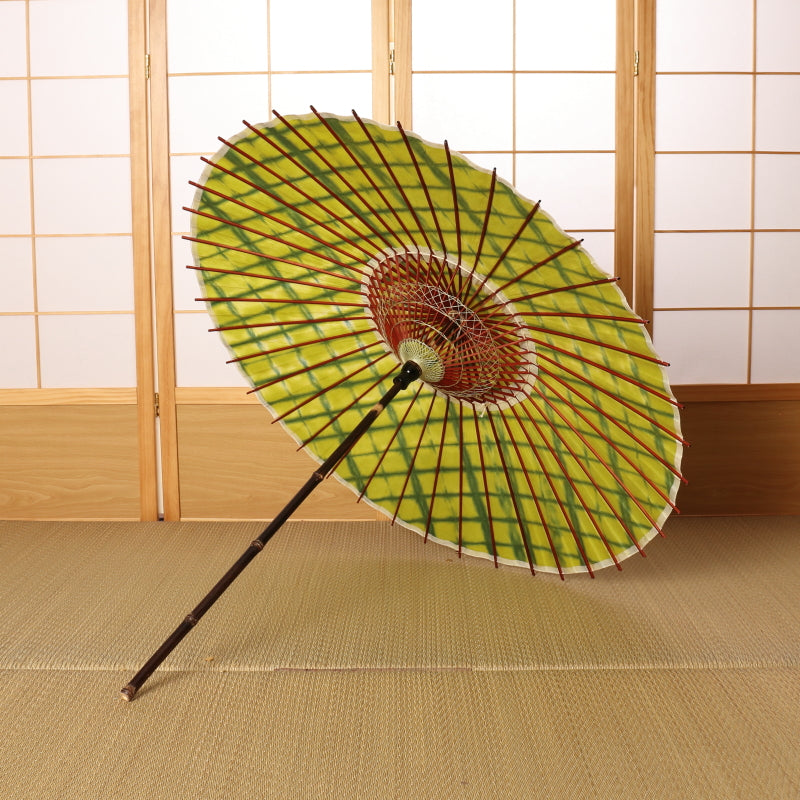
”EN” Moegi / Japanese Black Bamboo Parasol
■Black Bamboo Parasol
This is a Japanese parasol made of only domestic natural materials.
No metal is used at all, including the black bamboo handle.
The black bamboo handle fits comfortably in the hand, and the sound of the wood when the umbrella is opened is pleasant.
■Moegi
This is a bright yellow-green Japanese parasol that looks like fresh green sprouting in early spring.
Each parasol is made of Japanese paper hand-dyed by Shibori, a traditional Japanese technique, so that each parasol has a different texture.
■Tsujikura original Japanese parasol “En”
The relationships between people that lead up to the making of a single Japanese parasol.
Tsujikura’s commitment to the Japanese parasol is to pass this connection on to our customers and to the next generation.
*Please note that it cannot be used in the event of rain.
For one Japanese parasol to be produced, specific craftsmen undertake each separate process of making the ribs, creating the ‘rokuro’ to connect the ribs, and making the Japanese washi paper.Thus each parasol is tailor-made by Tsujikura craftsmen.Japanese parasols are made due to the connections between people, and Tsujikura seeks to pass these “EN” (connections) on to our customers, as well as to the next generation.As part of our mission, we bring you the Japanese Parasol "EN" Series.Tsujikura uses the most attractive Japanese washi paper such as Unryu (mulberry) paper and tie-dyed paper to produce Japanese parasols one rank above the rest.
Japanese parasols are not coated in oil so it is possible to enjoy the original beauty of the Japanese paper. They are used in Kyoto by Maiko (apprentice Geisha) etc. Recently Japanese parasols are gathering a lot of attention overseas as interior decoration.
*Please note that these parasols may not be used in rainy weather.
Tie-dyed washi paper is used for these Japanese parasols. Tie-dyed washi paper is Japanese paper which is hand dyed using Japanese traditional methods, giving a unique appearance to each parasol.
Specifications: Parasol, Japanese Decoration
Material:Japanese traditional paper ‘washi’
Color: Green
Bone: Red Bamboo
Stretchers: 40
Shaft: Black Bamboo
Latch: Wooden
Length: About 80cm
Diameter: About 85cm

Handling Method
How to Use the Wagasa
When you walk carrying the closed umbrella, please grasp the head of the Wagasa, or for Janome please grasp the cord on the head, and for Bangasa please hold the leather strings bound around the head.
How to Open the Wagasa
The Wagasa may be difficult to open due to the waterproof grease on the Washi. Please lightly grasp the bottom of the runner at the bottom inside the umbrella, and slowly and carefully push to the top to open the Wagasa.
About Shipping
Shipping outside Japan differs according to region and weight.
Place the item in your cart, choose the region and the details will become available.
In the case of one Wagasa (2kg including packaging):
¥3,100~ Asia (Korea, Singapore, Thailand, etc.)
Oceania (Australia, New Zealand, etc.)
¥3,500~ North America (USA, Canada, etc.)
Europe (UK, Italy, etc.)
¥5,700~ Europe (Russia, Iceland, etc.)
South America (Argentina, Peru, Brazil, etc.)
Middle East (United Arab Emirates, etc.)
English site payment is by US dollars.
After an order is received, products are shipped in about one week, and are delivered to the customer approximately one week following that.
Japanese Patterned Original Wagasa Bag
For each Japanese umbrella purchased, we will give you an original umbrella bag.
Unfortunately, we cannot accept requests for specific patterns. Thank you for your understanding. (The pattern in the image is an example.)


Overseas Customs & Import Duties
You are responsible for confirming that the product can be lawfully imported to the destination country.
When ordering from Tsujikura Online Shop, the recipient becomes the importer and must comply with all laws and regulations of the destination country.
Orders that are shipped to countries outside of Japan may be subject to import taxes, customs duties and fees levied by the destination country.
The recipient of an international shipment may be subject to such import taxes, customs duties and fees, which are levied once a shipment reaches your country.
Additional charges for customs clearance must be borne by the recipient; Tsujikura has no control over or relation to these charges and cannot predict what they may be.
Customs policies vary widely from country to country; please make sure you contact your local customs office for further information. When customs clearance procedures are required, delays can be caused beyond our original delivery estimates.
Choose options




